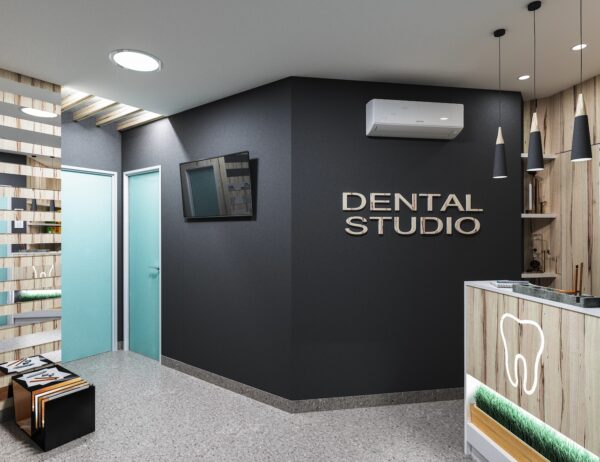Running a successful dental practice today requires more than great clinical skills. It also means competing for talented hygienists, assistants, and administrative staff in a labor market where turnover is high and expectations have shifted. Salary will always matter, but for many employees, benefits are what make or break their decision to stay.
For dentists, that creates an opportunity: by choosing benefits that are both tax-efficient and resonate with employees, you can strengthen loyalty, reduce hiring headaches, and manage costs at the same time.
What Your Team Really Wants
Anyone running a dental practice knows firsthand that staffing challenges are real. National surveys show that employees consistently point to a handful of priorities when evaluating an employer:
- Flexibility and balance – More workers want schedules that support their personal lives. While chairside roles can’t be remote, creative scheduling options go a long way.
- Health coverage – Affordable, reliable health insurance remains non-negotiable for most employees.
- Support for well-being – From mental health counseling to wellness stipends, employees expect resources that address stress and burnout.
- Retirement planning – Economic uncertainty has younger employees thinking about their future sooner. Access to savings plans is a big differentiator.
- Professional growth – Tuition assistance, CE support, and training stipends signal that you’re invested in long-term careers, not just filling today’s openings. Some practices are also offering a personal growth stipend that goes beyond CE, giving employees the freedom to invest in themselves in meaningful ways.
- Time off and holidays – Paid time off, vacation, and holiday schedules remain among the most visible and valued benefits and can significantly impact loyalty.
Ignoring these priorities can be costly: research shows a majority of employees would consider leaving for another employer whose benefits better match their needs. For practices that can’t always match the salaries of DSOs, a tailored benefits package can level the playing field.
Where Taxes Come Into Play
Here’s the good news: many of the benefits employees value most qualify as fringe benefits under IRS rules. While not all are automatically tax-free, a surprising number either avoid being taxed to the employee and remain deductible for the practice
That dual advantage means you can invest in benefits that matter without putting a lot of extra pressure on your bottom line.
Tax-Savvy Benefits That Deliver
Consider how these common options can align with both staff satisfaction and tax efficiency:
- Health Insurance – Premiums paid by the practice are generally deductible, while employees don’t pay tax on the coverage.
- Retirement Plans – 401(k)s, SIMPLE IRAs, or similar plans allow deductions for the practice. Plus, small employers may qualify for tax credits to offset startup and administrative costs.
- Continuing Education Support – Practices can provide up to $5,250 annually in tax-free educational assistance per employee, perfect for CE credits or skill-building.
- Wellness & Mental Health Resources – Employee assistance programs may qualify as tax-free benefits and are increasingly seen as essential.
- Commuter Benefits – Transportation and parking benefits are deductible up to IRS limits, reducing taxable income for employees.
- Meals – Some meal expenses remain partially deductible under current IRS rules.
Why This Matters for Dental Practice Owners
When you design benefits with both employee demand and tax treatment in mind, you accomplish three things at once:
- You retain your best people. Turnover is expensive both financially and in patient experience.
- You manage costs strategically. Smart use of deductible benefits lowers your practice’s tax liability.
- You compete with larger employers. Even if you can’t match salaries, you can differentiate yourself with benefits that employees value deeply.
In today’s environment, benefits aren’t a “nice to have,” they’re a core part of your talent strategy. For dental practices, taking time to regularly evaluate both employee needs and tax implications can pay dividends in loyalty, profitability, and peace of mind.
If you have questions about the tax deductibility of benefits you are considering, let us know. We are happy to help.
Rethinking Employee Benefits: A Strategic Move for Dental Practices
Running a successful dental practice today requires more than great clinical skills. It also means competing for talented hygienists, assistants, and administrative staff in a labor market where turnover is high and expectations have shifted. Salary will always matter, but for many employees, benefits are what make or break their decision to stay.
For dentists, that creates an opportunity: by choosing benefits that are both tax-efficient and resonate with employees, you can strengthen loyalty, reduce hiring headaches, and manage costs at the same time.
What Your Team Really Wants
Anyone running a dental practice knows firsthand that staffing challenges are real. National surveys show that employees consistently point to a handful of priorities when evaluating an employer:
- Flexibility and balance – More workers want schedules that support their personal lives. While chairside roles can’t be remote, creative scheduling options go a long way.
- Health coverage – Affordable, reliable health insurance remains non-negotiable for most employees.
- Support for well-being – From mental health counseling to wellness stipends, employees expect resources that address stress and burnout.
- Retirement planning – Economic uncertainty has younger employees thinking about their future sooner. Access to savings plans is a big differentiator.
- Professional growth – Tuition assistance, CE support, and training stipends signal that you’re invested in long-term careers, not just filling today’s openings. Some practices are also offering a personal growth stipend that goes beyond CE, giving employees the freedom to invest in themselves in meaningful ways.
- Time off and holidays – Paid time off, vacation, and holiday schedules remain among the most visible and valued benefits and can significantly impact loyalty.
Ignoring these priorities can be costly: research shows a majority of employees would consider leaving for another employer whose benefits better match their needs. For practices that can’t always match the salaries of DSOs, a tailored benefits package can level the playing field.
Where Taxes Come Into Play
Here’s the good news: many of the benefits employees value most qualify as fringe benefits under IRS rules. While not all are automatically tax-free, a surprising number either avoid being taxed to the employee and remain deductible for the practice
That dual advantage means you can invest in benefits that matter without putting a lot of extra pressure on your bottom line.
Tax-Savvy Benefits That Deliver
Consider how these common options can align with both staff satisfaction and tax efficiency:
- Health Insurance – Premiums paid by the practice are generally deductible, while employees don’t pay tax on the coverage.
- Retirement Plans – 401(k)s, SIMPLE IRAs, or similar plans allow deductions for the practice. Plus, small employers may qualify for tax credits to offset startup and administrative costs.
- Continuing Education Support – Practices can provide up to $5,250 annually in tax-free educational assistance per employee, perfect for CE credits or skill-building.
- Wellness & Mental Health Resources – Employee assistance programs may qualify as tax-free benefits and are increasingly seen as essential.
- Commuter Benefits – Transportation and parking benefits are deductible up to IRS limits, reducing taxable income for employees.
- Meals – Some meal expenses remain partially deductible under current IRS rules.
Why This Matters for Dental Practice Owners
When you design benefits with both employee demand and tax treatment in mind, you accomplish three things at once:
- You retain your best people. Turnover is expensive both financially and in patient experience.
- You manage costs strategically. Smart use of deductible benefits lowers your practice’s tax liability.
- You compete with larger employers. Even if you can’t match salaries, you can differentiate yourself with benefits that employees value deeply.
In today’s environment, benefits aren’t a “nice to have,” they’re a core part of your talent strategy. For dental practices, taking time to regularly evaluate both employee needs and tax implications can pay dividends in loyalty, profitability, and peace of mind.
If you have questions about the tax deductibility of benefits you are considering, let us know. We are happy to help.




